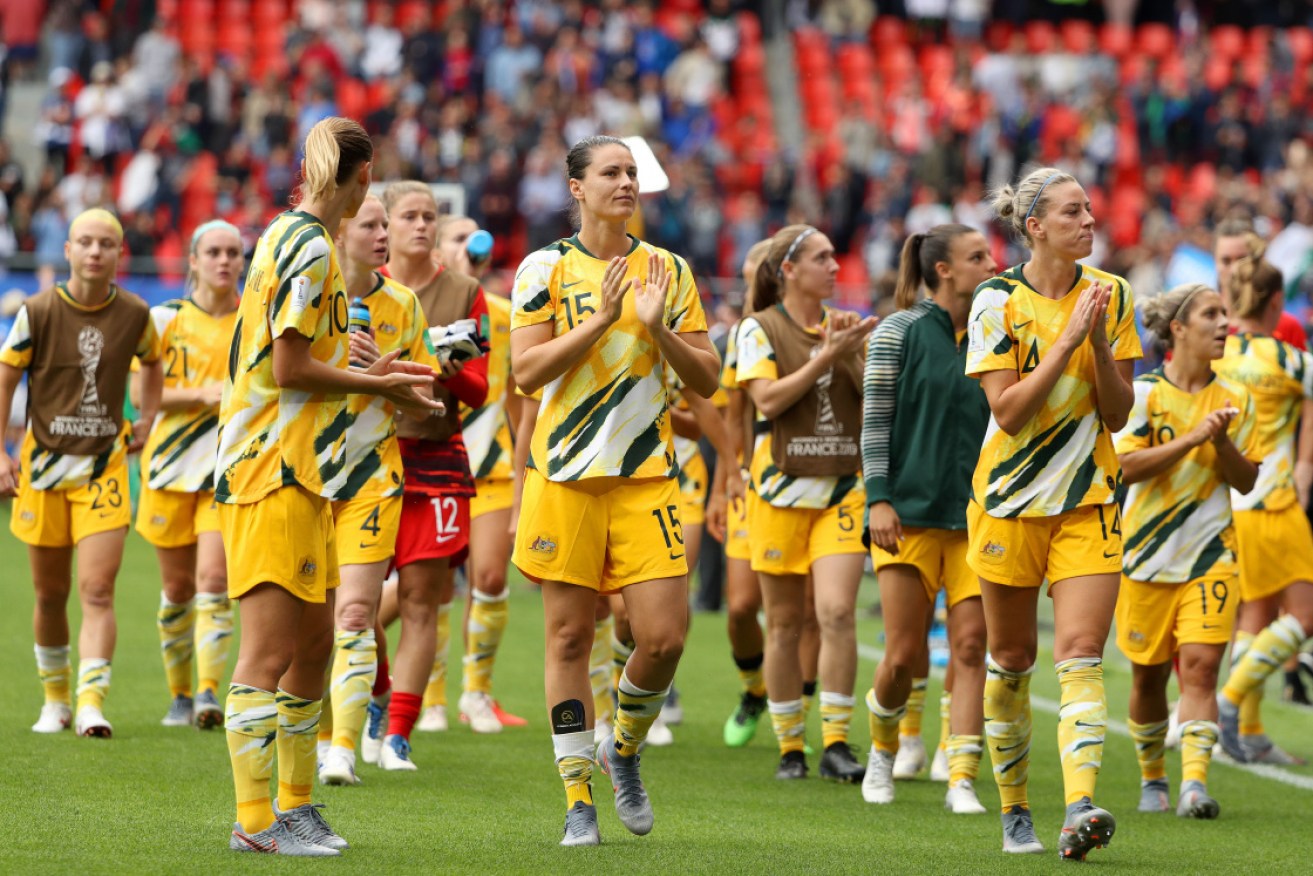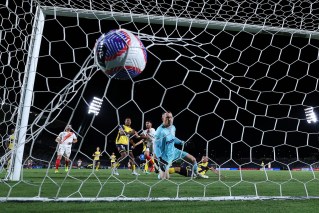Brazil exits, boosting joint Australia-NZ bid for 2023 FIFA Women’s World Cup


The Matildas hope to play a World Cup at home in 2023. Photo: Getty
Bouyed by the withdrawal of Brazil from the race for the 2023 FIFA Women’s World Cup bid, Australian soccer says it has government support to win bring the event down under.
Football Federation Australia chief executive James Johnson says Australia and New Zealand’s joint bid faces none of the economic concerns that scuppered the Brazilian effort.
Australia will now need to beat Japan and Colombia.
Japan’s bid features eight stadiums, many of which are set to host matches for next year’s Olympic football tournaments.
🗓 #OnThisDay one year ago, @samkerr1 scored her first @FIFAWWC goal! ⚽️ pic.twitter.com/xeiuJqLh9s
— CommBank Matildas (@TheMatildas) June 9, 2020
Outsiders Colombia, which only formed a women’s league in 2017, is bidding to become the first South American nation to host the event.
“We certainly believe that a successful FIFA Women’s World Cup bid would help the federal and state governments and would help support many industry sectors,” Johnson told AAP.
“There would be a lot of positive economic and social opportunities leading up to 2023 and the commitments – and there are commitments from the government – are in place subject to winning the hosting rights.
What the Women’s World Cup would do for Australia and New Zealand is we would see 1.5 million spectators that would attend matches.
“This would be across 12 separate host cities – seven of which would be here in Australia. We’re forecasting that there would be a $460 million social and economic benefit from hosting the tournament.
“Our government support is as strong as ever.”
Johnson believes Australia and New Zealand’s work to combat the COVID-19 crisis will hold the joint bid in good stead, including the FFA stepping in at short notice in February to successfully host part of the AFC’s Olympic qualifying tournament.
“(In February) we were actually one of the first football nations around the globe that needed to deal with COVID-19 because we had the situation where the Matildas were supposed to head up to Wuhan for the qualifiers for the Olympics,” Johnson said.
“We took a very quick decision not to send the players.
“At the time the decision was made, COVID-19 wasn’t what we know it is today – it was just a virus that had come out of Wuhan.
“Ever since that point we’ve had to work closely with our government.
“Issues like how we dealt with (hosting) the Chinese women’s national team, how our government helped us with the Chinese women’s national team, how we were able to administratively put on a good qualifying tournament for the Olympics at short notice.
“Also the way in which our government has since dealt with COVID-19 in a broader sense – not just football. And how the governing bodies, New Zealand Football and FFA, have had to deal with grassroots football.
“I think all these things help, I really do.”
#OnThisDay in 2019, the hosts woke up to happy headlines.
After their opening 4-0 win in Paris.#FIFAWWC | #DareToShine@equipedefrance | @FrenchTeam pic.twitter.com/WZoeAwSO9S— FIFA Women's World Cup (@FIFAWWC) June 8, 2020
The winning bid will be decided by an online meeting of the FIFA council on June 25.
The Brazilian Football Confederation (CBF) said economic concerns related to the COVID-19 crisis were a primary factor in the bid being withdrawn.
“In view of the exceptional times experienced by the country and the world, CBF understands the cautious position of the Brazilian government, and of other public and private partners, which prevented them from formalising the commitments within the time or in the required manner,” the CBF said.
-with AAP








